特惠-26考研冲刺
特惠-27考研课
双证-在职硕士
免联考-同等学力
复试分数线
26复试全面指导
模拟复试面试
26考研-全套真题
26考研估分
保研-路线图
27考研-智能择校
27考研-英语测评
27考研-新大纲对比
热门-计算机择校

扫码加入训练营
牢记核心词
学习得礼盒
III. Write a summary of the following story in 150-200 Chinese character. (20 points)
Beijing’s Focus on Food Prices Ignores Broader Inflation Risk
China took steps Wednesday to control rising prices at the most basic consumer level. But Beijing faces a severe challenge in preventing higher global commodity prices from igniting broader inflation that could threaten China’s streak of powerful economic growth.
With prices rising this autumn for many commodities like sugar and cotton, the country’s cabinet announced on Wednesday evening that it would impose price controls on food, introduce subsidies for the needy and increase the availability of fuel supplies.
So far, the inflation in consumer goods in China has been largely confined to food and energy, and government policy makers want to keep it that way. But avoiding more general inflation could prove difficult.
And in terms of economic diplomacy, the measures announced Wednesday were almost precisely the opposite of the steps the Obama administration and many Western economists have been urging Beijing to take.
China’s broadly measured money supply has surged in the last two years, soaring 54 percent as its central bank has supported the export economy by intervening in currency markets to keep the renminbi artificially low. Considerable cash is also sloshing around the Chinese economy because of two years of extremely heavy lending by state-owned banks to finance a highly successful economic stimulus program that has returned the country to double-digit growth.
But China’s leaders are now clearly worried about the inflationary side effects of those financial policies. The premier, Wen Jiabao, has toured southern China over the last week and was shown on national television late Tuesday night expressing concern about rising food prices and promising that the government would take action.
Zhou Xiaochuan, the governor of the central bank, had said earlier on Tuesday that the amount of money racing through the global economy was putting pressure on emerging economies that want to control inflation. And Yao Jian, a commerce ministry spokesman, said at a press conference on Tuesday that the government would tighten scrutiny of foreign investment so as to prevent too much money from pouring into China as foreign investors seek higher returns than are currently available in the West.
Imposing price controls and other administrative controls on the Chinese economy runs counter to the steps recommended by many Western experts. They have suggested that China should further deregulate its economy, let the renminbi appreciate and otherwise rely on market forces to tame inflation.
The standard policy prescription from Washington has been that China should raise interest rates, as a way to slow investment and prevent the economy from overheating. And American policy makers from President Obama down have argued that if China would let the renminbi rise against the dollar, oil and other commodities would be less expensive in China, helping to tame inflation. But Beijing has resisted, in large part because Washington’s prescribed medicine would reduce the price competitiveness of Chinese exports to the United States and elsewhere.
Still, even as China is zigging when Washington would rather it zag, some corporate economists are cautiously optimistic that China may be able to tame inflation with its approach — for now, at least.
“Given that food prices are spearheading immediate inflationary pressures, supply-side measures should be more effective than rate hikes,” Qu Hongbin, the co-head of Asian economics research at the international bank HSBC, wrote in a research note on Wednesday night. “There’s no need to panic, as Beijing has more than enough effective policy options to combat inflation.”
And yet, while there may be limits to China’s ability to keep a lid on inflation, it is better prepared than many countries to cope with rising world commodity prices. That is because China is self-sufficient in most foods, has an enormous trade surplus and has accumulated copious foreign reserves that reached $2.65 trillion at the end of September.
“There’s no need to panic, as Beijing has more than enough effective policy options to combat inflation” -Co-head of Asian Economics Research, HSBC, Qu Hongbin
In contrast, the United Nations Food and Agriculture Organization warned on Wednesday that food import bills were up 10 percent this yearfor the world’s poorest countries.
But many economists were surprised by the accelerated inflation in China that the National Bureau of Statistics disclosed in Beijing last week. Overall consumer prices were 4.4 percent higher last monththan a year earlier.
Chinese leaders have repeatedly made clear over the years that fighting inflation is a top priority, because it could fuel social unrest. And they have publicly set a target of not allowing the annual increase in consumer prices to reach 5 percent again. It peaked at 8.5 percent in the spring of 2008.
If food and energy prices are removed from the consumer price index, the prices for everything else are up only 1.3 percent from a year earlier, according to the government. But that is not necessarily a reassuring measure, some economists suggest.
Chinese and Western economists worry that the Chinese price index may underestimate inflation separate from food and energy. The Chinese index has longstanding methodological problems — like measuring apartment rents but not the cost of buying and living in an apartment, which has soared in recent years.
While climbing food and energy prices are a global problem, they particularly affect lower-income countries like China, where such necessities claim a far larger share of household incomes than in more affluent nations. China’s consumer price index, which is based mainly on urban spending patterns, assumes that groceries represent a third of a family’s spending.
That is extremely high by Western standards. And it shows how far China must still go to create the kind of broad-based consumer society that American officials recommend and that Chinese leaders say they want to adopt in the long term in place of their current export-led model. In the United States, groceries represent only 8 percent of the Consumer Price Index.
The State Council, China’s cabinet of ministers, decided on Wednesday that it would stabilize prices for grain, oil, sugar and cotton in particular, according to a statement on a government Web site. The State Council also said that the government would make sure that more diesel reached filling stations, to fuel trucks, and that utility power stations had ample supplies of coal.
The high prices and relative scarcity of diesel fuel have resulted in part from its use by factories, which have been burning it in backyard generators as power companies have cut back electricity generation to meet national targets for limiting energy consumption.
Meanwhile, utilities have struggled to buy enough coal because the government requires coal mines to sell it to power companies at low, regulated prices. The mines, of course, prefer to sell their coal at higher prices on the open market.
Last week, in another move against inflation, Beijing ordered commercial banks to put more of their assets in low-yield accountsat the central bank. The measure, an increase in the so-called reserve requirement, was meant to cool a frenzy of lending over the last two years that has priced urban real estate beyond the reach of most working-class families.
Liang Huoqiao, a 22-year-old plastics worker, said in an interview earlier this year in Guangzhou in southern China that his pay was rising 10 percent a year, to around $300 a month. But his entire annual pay would be enough to buy only about two square meters of an apartment, or 21.5 square feet.
So he planned to buy a car as soon as possible, and worry about a home later.
IV. Chinese to English translation
旅客似乎是十分轻松的人,实际上却相当辛苦。旅客不用上班,却必须受时间的约束;爱做什么就做什么,却必须受钱包的限制;爱去哪里就去哪里,却必须把几件行李蜗牛壳一般带在身上。旅客最可怕的噩梦,是钱和证件一起遗失,沦为来历不明的乞丐。旅客最难把握的东西,便是气候。
我现在就是这样的旅客。从西班牙南端一直旅行到英国的北端,我经历了各样的气候,已经到了寒暑不侵的境界。此刻我正坐在中世纪古堡改装的旅馆里,为读者写稿,刚刚黎明,湿灰灰的云下是苏格兰中部荒莽的林木,林外是隐隐的青山。晓寒袭人,我坐在厚达尺许的石墙里,穿了一件毛衣,如果要走下回旋长梯像走下古堡之肠,去坡下的野径漫步寻幽,还得披上一件够厚的外套。
-选自余光中《西欧的夏天》第一二段
Summer in Western Europe
Yu Guangzhong
Light-hearted as he seems,a traveler is in fact under great stress. Though on vacation, he is nevertheless subject to the restraint of time. He can do whatever he likes on the trip, but he has to keep the expenditure within the limits of his pocket. Wherever he goes, he has to take with him his cumbersome hand luggage. He faces the most horrible possibility of losing his money and credentials, which will reduce himself to a pauper of unknown background. And, besides, he can never be sure of the weather.
That’s what I’m like now. I’ve traveled all the way from the southern tip of Spain to the northern tip of England, experiencing a variety of climates until I’ve become apathetic to the elements. I’m now sitting in a medieval castle turned hotel, writing an article for my readers. The day is just dawning. In Central Scotland, there lies under the gray wet clouds a wild wooded region, beyond which a green mountain stands faintly visible. In the chilly air of the early morning, I have to be dressed in a woolen sweater while sitting on a stone wall one foot on thickness. But I need, in addition, an outer garment to keep me warm in case I come down the spiral staircase—the intestines of the castle—to take a stroll along an unfrequented path down the mountain slope in search of secluded places of quiet beauty.
【翻译硕士】资料这里有↑↑↑

 资料下载
资料下载
2014年-2025年考研历年真题汇总
发布时间:2024-04-25扫码添加【考研班主任】
即可领取资料包
考研大纲PDF电子版下载-历年(附解析)
发布时间:2024-04-25扫码添加【考研班主任】
即可领取资料包
2026年考研政数英备考资料zip压缩包
发布时间:2024-04-25扫码添加【考研班主任】
即可领取资料包
考研英语大纲词汇5500打印版(基础必备)
发布时间:2024-04-25扫码添加【考研班主任】
即可领取资料包
新东方在线考试模拟题【12套】
发布时间:2024-04-25扫码添加【考研班主任】
即可领取资料包
2026年考研专业课知识点总结
发布时间:2024-04-25扫码添加【考研班主任】
即可领取资料包
新东方考研资料下载地址
发布时间:2023-05-17新东方在线考研资料合集
下载方式:微信扫码,获取网盘链接

目录:
1.2013-2023年近10年政数英真题及解析PDF版(新东方)
2.2013-2023年专业课考试历年真题及解析PDF版
3.24考研复习备考资料大合集:大纲+备考资料+词汇书+考前押题+自命题
资料介绍:
1.2013-2023年近10年政数英真题及解析PDF版(新东方)
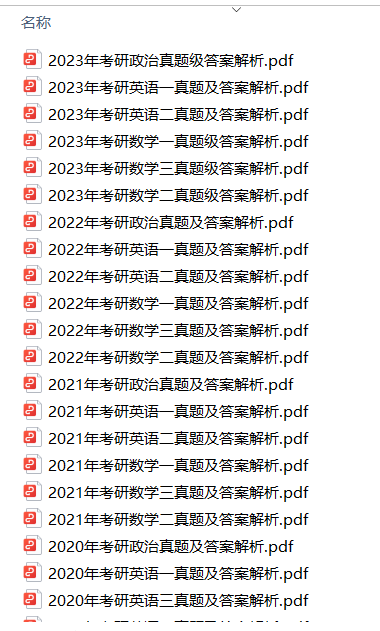 、
、
2.2013-2023年专业课考试历年真题及解析PDF版

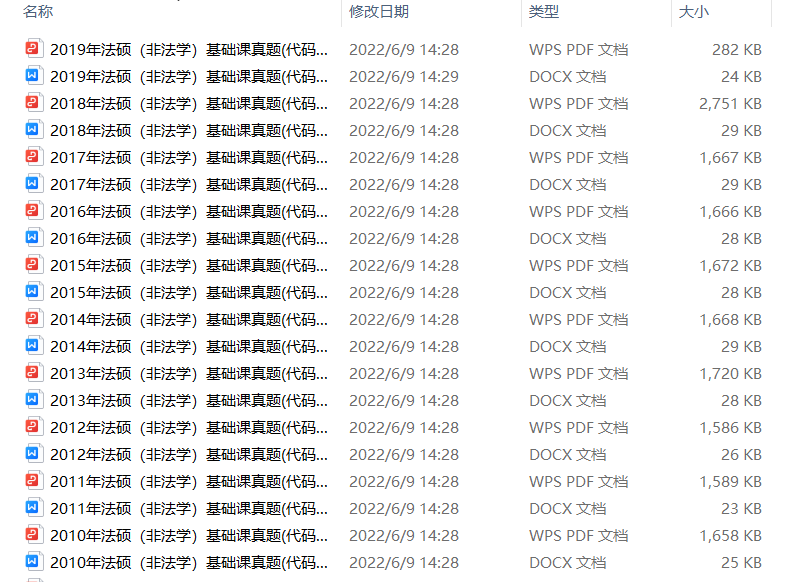
3.24考研复习备考资料大合集
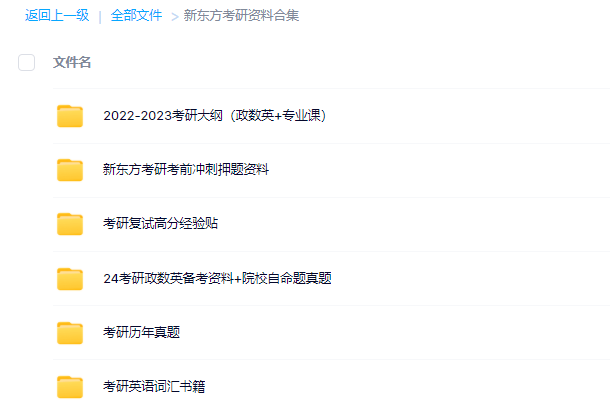
3.24考研复习备考资料:考研大纲
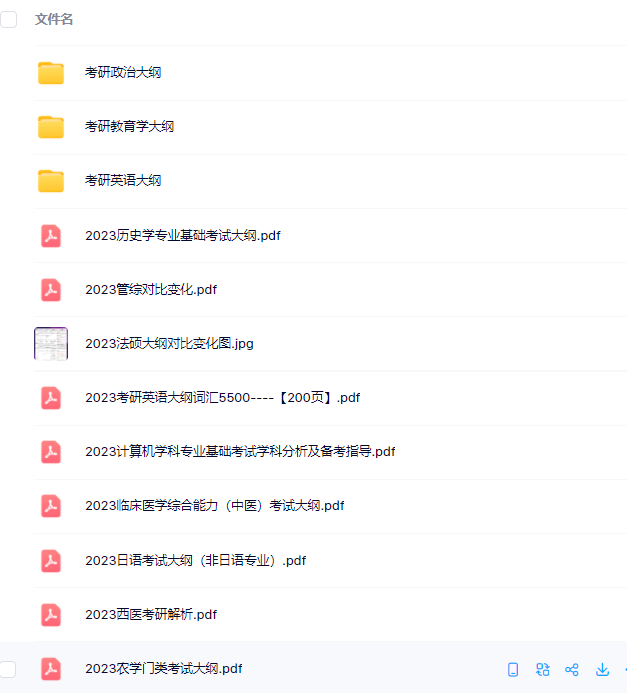
3.24考研复习备考资料:政数英备考资料+自命题真题
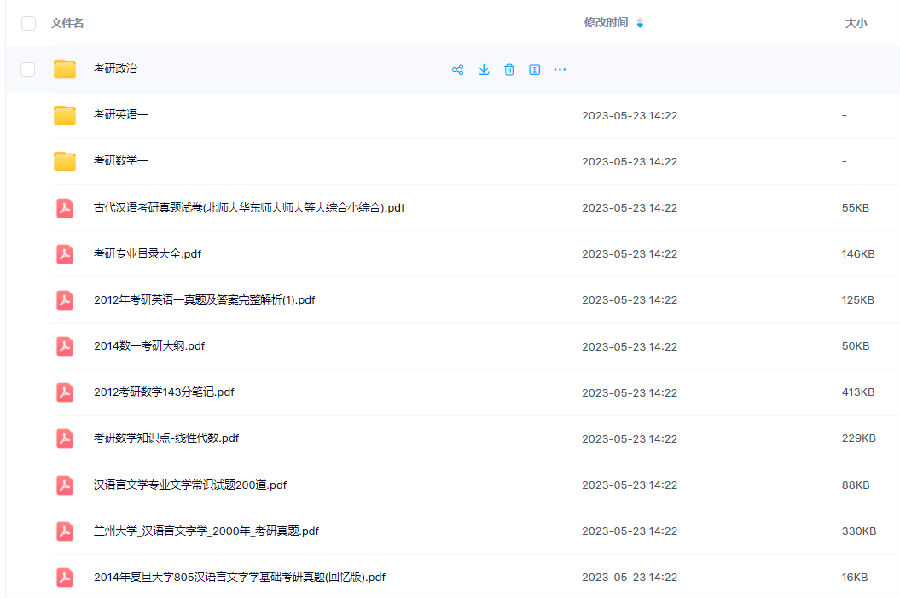
------------------
考研备考过程中,尤其是专业课部分,参考往年的考试真题,对于我们的复习有更好的帮助。北京大学考研真题资料都有哪些?小编为大家进行了汇总。
北京大学考研真题资料-公共课
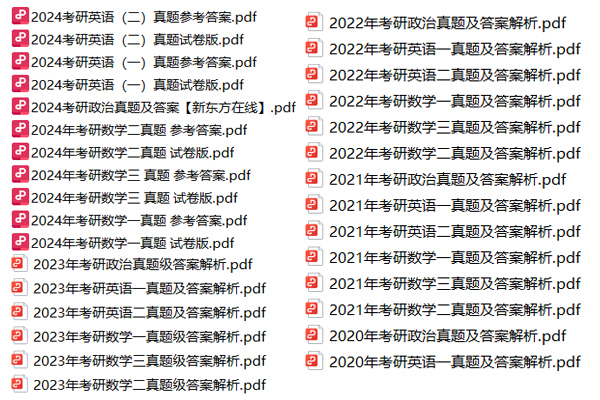
北京大学考研真题资料-专业课


以上就是关于“北京大学考研真题资料下载(历年汇总)”的整理,更多考研资料下载,请关注微信获取下载地址。
2024考研公共课必背知识点汇总
发布时间:2023-01-03扫码添加【考研班主任】
即可领取资料包
2013-2023考研历年真题汇总
发布时间:2023-01-03扫码添加【考研班主任】
即可领取资料包
考研英语大纲词汇(PDF可打印)
发布时间:2023-01-03扫码添加【考研班主任】
即可领取资料包
2024考研专业课知识点总结
发布时间:2023-01-03扫码添加【考研班主任】
即可领取资料包
2023考研政治 内部押题 PDF
发布时间:2022-11-16扫码添加【考研班主任】
即可领取资料包
徐涛:23考研预测六套卷
发布时间:2022-11-16扫码添加【考研班主任】
即可领取资料包
考研政数英冲刺资料最新整理
发布时间:2022-11-16扫码添加【考研班主任】
即可领取资料包
23考研答题卡模板打印版
发布时间:2022-11-16扫码添加【考研班主任】
即可领取资料包
2023考研大纲词汇5500PDF电子版
发布时间:2022-07-28扫码添加【考研班主任】
即可领取资料包
考研历年真题(公共课+专业课)
发布时间:2022-07-28扫码添加【考研班主任】
即可领取资料包
考研英语阅读100篇附解析及答案
发布时间:2022-01-07扫码添加【考研班主任】
即可领取资料包
新东方考研学霸笔记整理(打印版)
发布时间:2022-01-07扫码添加【考研班主任】
即可领取资料包
2001-2021年考研英语真题答案(可打印版)
发布时间:2022-01-07扫码添加【考研班主任】
即可领取资料包
考研英语词汇5500(完整版下载)
发布时间:2022-01-07扫码添加【考研班主任】
即可领取资料包
2022考研政审表模板精选10套
发布时间:2022-01-07扫码添加【考研班主任】
即可领取资料包
历年考研真题及答案 下载
发布时间:2021-12-09扫码添加【考研班主任】
即可领取资料包
考研政审表模板汇总
发布时间:2020-06-17扫码添加【考研班主任】
即可领取资料包
近5年考研英语真题汇总
发布时间:2020-06-17扫码添加【考研班主任】
即可领取资料包
考研英语大纲词汇5500
发布时间:2020-06-17扫码添加【考研班主任】
即可领取资料包
2022考研12大学科专业排名汇总
发布时间:2019-11-21扫码添加【考研班主任】
即可领取资料包
2023考研政治复习备考资料【珍藏版】
发布时间:2019-11-21扫码添加【考研班主任】
即可领取资料包
考研英语万能模板+必备词汇+范文
发布时间:2019-11-21扫码添加【考研班主任】
即可领取资料包
考研数学一、二、三历年真题整理
发布时间:2019-11-21扫码添加【考研班主任】
即可领取资料包

添加班主任领资料
添加考研班主任
免费领取考研历年真题等复习干货资料

 推荐阅读
推荐阅读
今天为大家带来2026翻译硕士知识点指导:比较结构相关内容,考研专业硕士备考是一个辛苦的过程,希望通过新东方在线考研频道分享的考研
今天为大家带来2026翻译硕士知识点指导:双重否定相关内容,考研专业硕士备考是一个辛苦的过程,希望通过新东方在线考研频道分享的考研
今天为大家带来2026翻译硕士知识点指导:阿育王相关内容,考研专业硕士备考是一个辛苦的过程,希望通过新东方在线考研频道分享的考研翻
今天为大家带来2026翻译硕士知识点指导:孔雀王朝相关内容,考研专业硕士备考是一个辛苦的过程,希望通过新东方在线考研频道分享的考研
今天为大家带来2026翻译硕士知识点指导:大流士改革相关内容,考研专业硕士备考是一个辛苦的过程,希望通过新东方在线考研频道分享的考

 资料下载
资料下载
扫码添加【考研班主任】
即可领取资料包
扫码添加【考研班主任】
即可领取资料包
扫码添加【考研班主任】
即可领取资料包
扫码添加【考研班主任】
即可领取资料包
扫码添加【考研班主任】
即可领取资料包
扫码添加【考研班主任】
即可领取资料包
新东方在线考研资料合集
下载方式:微信扫码,获取网盘链接

目录:
1.2013-2023年近10年政数英真题及解析PDF版(新东方)
2.2013-2023年专业课考试历年真题及解析PDF版
3.24考研复习备考资料大合集:大纲+备考资料+词汇书+考前押题+自命题
资料介绍:
1.2013-2023年近10年政数英真题及解析PDF版(新东方)
 、
、
2.2013-2023年专业课考试历年真题及解析PDF版


3.24考研复习备考资料大合集

3.24考研复习备考资料:考研大纲

3.24考研复习备考资料:政数英备考资料+自命题真题

------------------
考研备考过程中,尤其是专业课部分,参考往年的考试真题,对于我们的复习有更好的帮助。北京大学考研真题资料都有哪些?小编为大家进行了汇总。
北京大学考研真题资料-公共课

北京大学考研真题资料-专业课


以上就是关于“北京大学考研真题资料下载(历年汇总)”的整理,更多考研资料下载,请关注微信获取下载地址。
扫码添加【考研班主任】
即可领取资料包
扫码添加【考研班主任】
即可领取资料包
扫码添加【考研班主任】
即可领取资料包
扫码添加【考研班主任】
即可领取资料包
扫码添加【考研班主任】
即可领取资料包
扫码添加【考研班主任】
即可领取资料包
扫码添加【考研班主任】
即可领取资料包
扫码添加【考研班主任】
即可领取资料包
扫码添加【考研班主任】
即可领取资料包
扫码添加【考研班主任】
即可领取资料包
扫码添加【考研班主任】
即可领取资料包
扫码添加【考研班主任】
即可领取资料包
扫码添加【考研班主任】
即可领取资料包
扫码添加【考研班主任】
即可领取资料包
扫码添加【考研班主任】
即可领取资料包
扫码添加【考研班主任】
即可领取资料包
扫码添加【考研班主任】
即可领取资料包
扫码添加【考研班主任】
即可领取资料包
扫码添加【考研班主任】
即可领取资料包
扫码添加【考研班主任】
即可领取资料包
扫码添加【考研班主任】
即可领取资料包
扫码添加【考研班主任】
即可领取资料包
扫码添加【考研班主任】
即可领取资料包

 阅读排行榜
阅读排行榜
 相关内容
相关内容